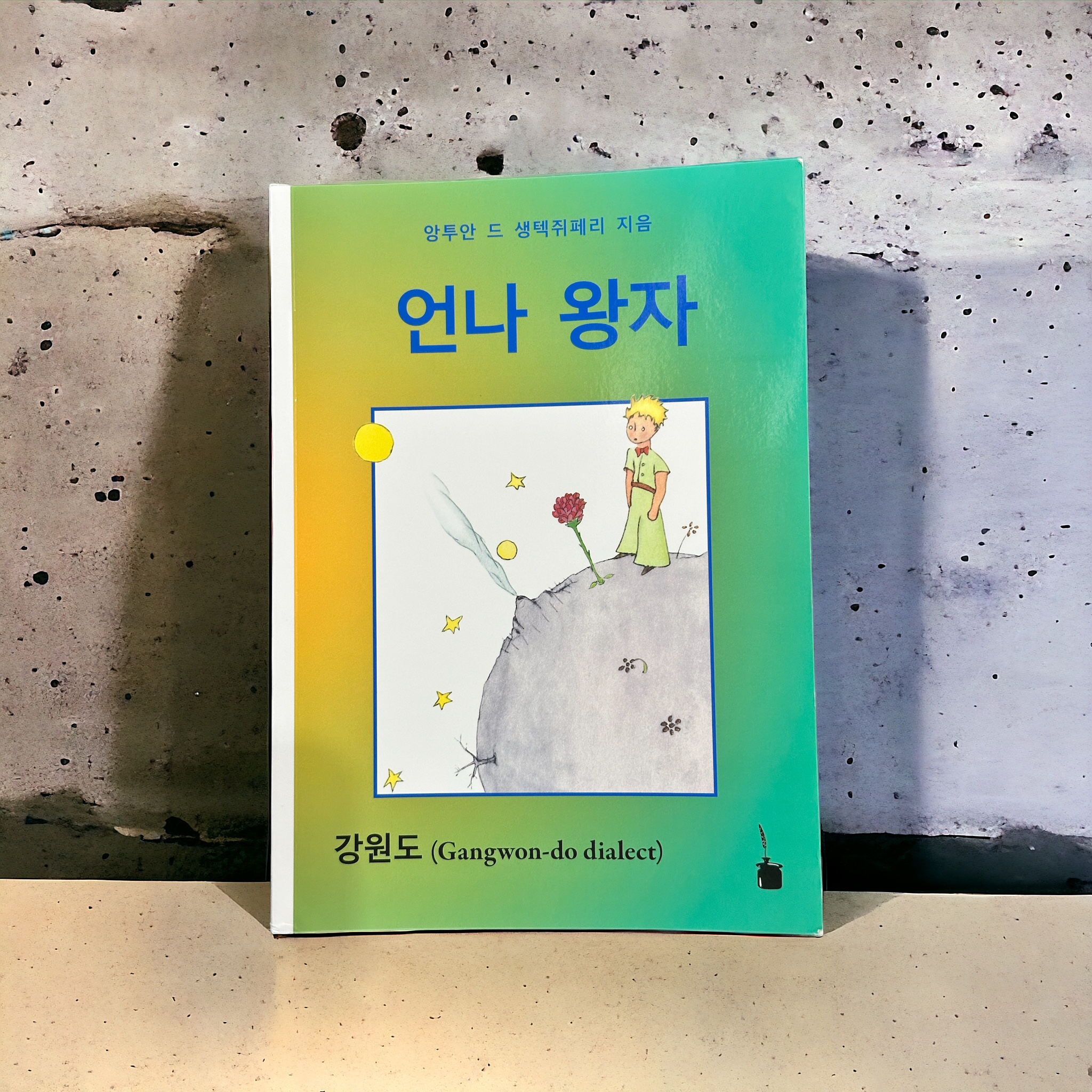
언나 왕자 / Eonna Wangja — in Gangwon dialect.
The Gangwon dialect, also known as Gangwon-do satoori in Korean, refers to the varieties of the Korean language spoken in the Gangwon Province of South Korea and the North Korean province of Kangwon. This dialect is part of the larger group of Northeastern dialects in the Korean language, and it exhibits distinct linguistic features that differentiate it from the standard Korean used in Seoul, which is based on the dialect of the Gyeonggi region.
The Gangwon dialect has unique phonological characteristics, including differences in vowel sounds and intonation patterns compared to Standard Korean. For example, there are variations in the pronunciation of certain vowels that can distinguish speakers of the Gangwon dialect from those of other regions.
This language includes specific regional vocabulary and expressions not found in Standard Korean or used differently. These linguistic variations reflect the cultural and historical particularities of the Gangwon region. The dialect can exhibit unique grammatical constructions, including the use of local particles, verb endings, and sentence structures that may not be present in Standard Korean.
The Gangwon dialect is primarily spoken in rural and urban areas within the Gangwon Province. While it carries a strong regional identity, speakers might switch to Standard Korean in formal settings or when communicating with people from outside the region. In South Korea, regional dialects, including Gangwon’s, are often celebrated for their cultural significance but can also be subject to stereotypes.


